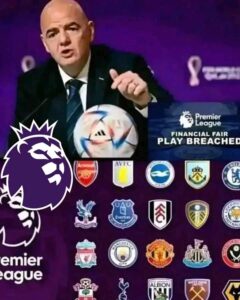In December, the long-awaited confirmation of Manchester United’s acquisition by 71-year-old billionaire Sir Jim Ratcliffe sent shockwaves through the football world. Ratcliffe, with his INEOS Group, injected a staggering £1 billion into the club, securing a significant 27.7% stake, potentially rising to nearly 30% with an additional £238 million investment.
This move wasn’t isolated; Nice, a French football club in Ligue 1, currently sits under the INEOS umbrella, adding another layer to the intrigue. UEFA, recognizing the conflict of interest, swiftly implemented regulations preventing teams under the same ownership from competing in the same competition. A UEFA insider clarified this stance to SunSport, highlighting the need for regulatory compliance.

As Manchester United navigates their European qualification campaign, led by manager Erik ten Hag, the waters are murky. Lagging behind in the league race, hopes hinge on alternative avenues, particularly the FA Cup. The fate of their European aspirations intertwines with Manchester City’s performance, with potential additional spots depending on the league outcome.
Complications arise further if both Manchester United and Nice secure Europa League positions, with precedence favoring the latter due to ownership ties. However, triumph in the FA Cup offers a lifeline, altering the qualification landscape.
Even in scenarios where both teams secure Champions League qualification, nuances like domestic league standing and UEFA coefficients come into play, ensuring Manchester United’s prominence remains intact despite the intricate ownership web.